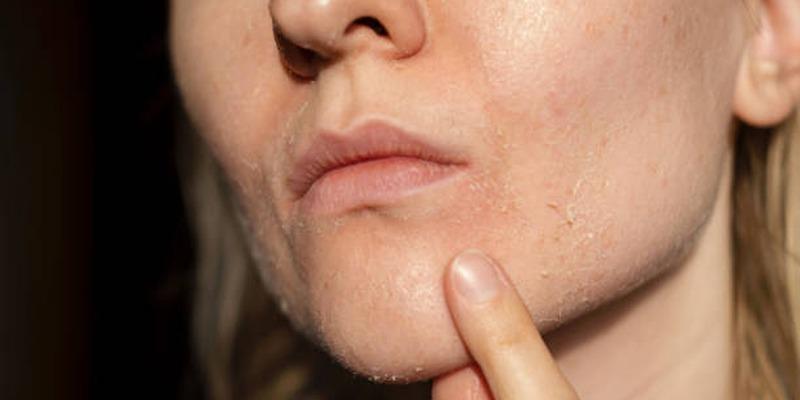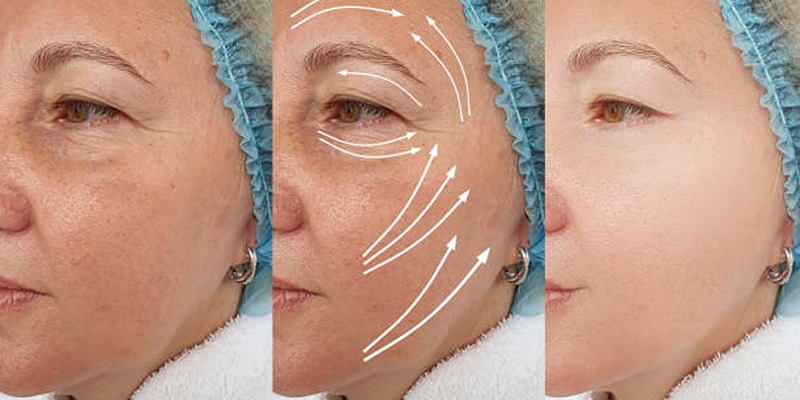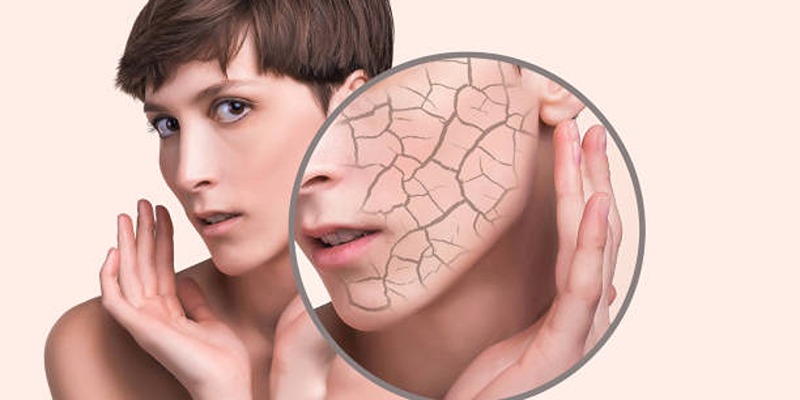Advertisement
It is important to know your skin type and what it requires to ensure that it is healthy. One confusion most people have is between having dry skin and being dehydrated. Though they may seem to be very close in what they are, how they develop, their manifestations, and how they are managed, they differ. This guide will help you understand the differences and give practical approaches to dealing with each.

Dry skin is a skin type that does not produce any oil or sebum, or does not produce sufficient sebum. They usually describe it as a skin condition that is permanent in nature but is capable of being well controlled with time. People with dry skin usually feel their skin become tight, dull and sometimes scaly.

Unlike dry skin, dehydrated skin is a temporary condition. Dehydrated skin lacks water, not oil. This means it can happen to anyone, regardless of their skin type, whether dry, oily, or combination.
To accurately assess whether your skin is dry or dehydrated, pay close attention to its behavior and appearance. A simple test is to gently pinch a small amount of skin on your cheek; if it wrinkles with gentle pressure, it's likely dehydrated, while dry skin will feel tight and may appear flaky.
If your skin feels rough, flaky, and lacks oil, it is likely dry. However, if it feels tight but has a greasy layer or appears dull, it may be dehydrated.
Pinch a small area of skin on your cheek. If it wrinkles with minimal elasticity, your skin might be dehydrated. If it simply feels dry, it may be lacking oils.
While dry skin can have a rough texture, dehydrated skin often shows fine lines and a dull appearance due to lack of water.
If you have dry skin, your focus should be on restoring and retaining oil to improve skin's elasticity and reduce tightness.
Look for a hydrating cleanser free of sulfates, which can strip skin of its natural oils. Cream-based cleansers are ideal for dry skin types.
Choose a moisturizer with oils like jojoba, coconut, or olive. These ingredients provide essential fatty acids and help lock in moisture.
Dry skin is often more prone to environmental damage. Apply a broad-spectrum sunscreen daily to protect your skin from harmful UV rays.
Weekly hydrating masks help replenish moisture levels. Look for masks containing natural butters or oils to nourish deeply.
For dehydrated skin, the focus should be on replenishing water content, not oil.
Opt for alcohol-free toners and mists that help add a layer of hydration without drying out the skin. Look for ingredients like hyaluronic acid and aloe vera.
Water-based serums containing hyaluronic acid can bind water to the skin, helping restore hydration levels. Apply this after toner but before moisturizer.
Choose a moisturizer that is lightweight yet hydrating, particularly one containing glycerin or squalane, which helps to hold water within the skin layers.
Over-exfoliating can further dehydrate skin. Stick to a gentle exfoliator once or twice a week to avoid removing essential moisture.
Dehydration, excessive caffeine consumption, and lack of sleep can sap skin's moisture, leading to a dull and tired complexion. Maintaining a balanced diet, drinking adequate water, and ensuring sufficient rest are crucial for keeping your skin hydrated and vibrant.
Understanding dehydrated skin can be confusing, and numerous misconceptions abound. Let's debunk some common myths to help you better care for your skin.
While drinking water is essential for overall health and can contribute to skin hydration, it wont solve all skin problems. Issues like acne, dryness, or aging require a balanced skincare routine that includes targeted treatments and products designed to address specific skin needs such as exfoliation, moisturization, and sun protection.
Contrary to popular belief, even oily skin can become dehydrated. Factors such as environmental conditions, harsh skincare products, and lifestyle choices can strip the skin of its natural moisture. Those with oily skin should still prioritize hydrating products, opting for lightweight formulations that provide moisture without the heaviness of oils, ensuring that their skin remains balanced and healthy.
Understanding the differences between dry and dehydrated skin is essential for selecting the most effective skincare routine. By accurately diagnosing your skin type, you can tailor your approach to address specific needs, whether it's replenishing lost oils in dry skin or restoring water content in dehydrated skin. Incorporating suitable products with ingredients like hyaluronic acid for hydration or plant oils for moisture retention is key to achieving a healthy and balanced complexion.

By Pamela Andrew/Oct 10, 2024

By Jennifer Redmond/Oct 15, 2024

By Jennifer Redmond/Dec 14, 2024

By Sean William/Oct 14, 2024

By Celia Kreitner/Feb 19, 2025

By Madison Evans/Apr 01, 2025

By Celia Kreitner/Dec 15, 2024

By Sid Leonard/Feb 28, 2025

By Noa Ensign/Nov 10, 2024

By Paula Miller/Oct 15, 2024

By Madison Evans/Nov 05, 2024

By Isabella Moss/Nov 20, 2024